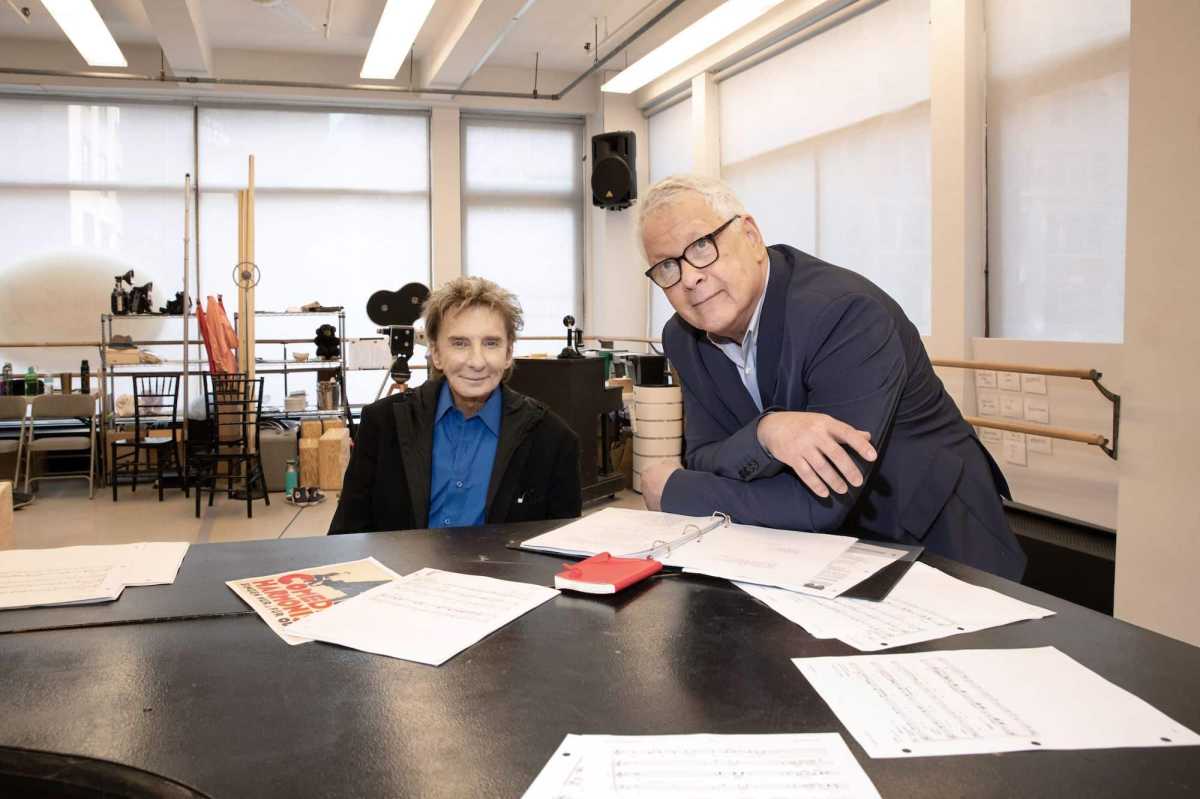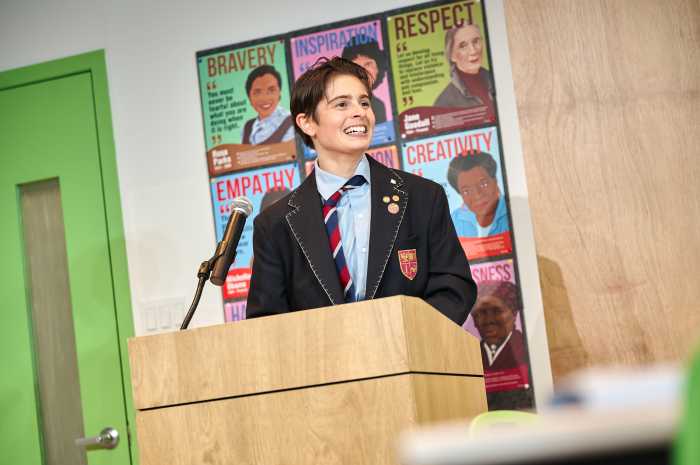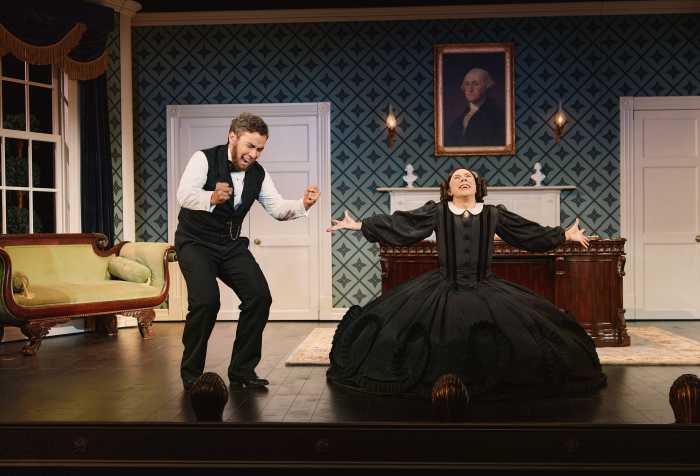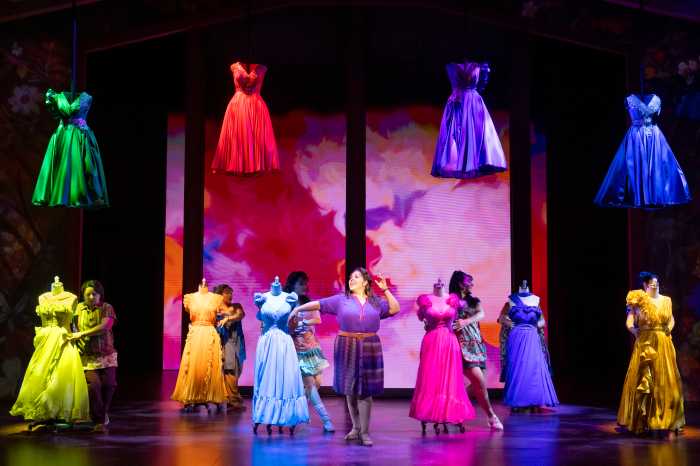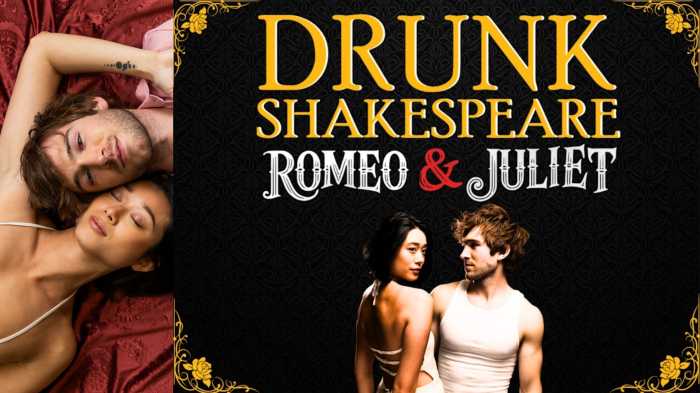Following a quarter century of development, a handful of regional productions, and an Off-Broadway premiere, “Harmony,” Barry Manilow and Bruce Sussman’s original bio musical about the Comedian Harmonists, an all-male, half-Jewish, half-Gentile, German musical group that enjoyed international fame in the late 1920s and early 1930s up until Hitler’s rise to power, has finally made it to Broadway.
The fact that Manilow and Sussman did not give up on the musical (which received its world premiere all the way back in 1997 in San Diego with a cast that included Patrick Wilson, Danny Burstein, and the late Rebecca Luker) is incredible – and a case study in perseverance and faith for aspiring musical theater writers.
In the fall of 2003, when I first became a theater journalist, I remember writing about how “Harmony,” which was slated to go to Broadway that season, had been shut down in rehearsals due to a lack of funds, which then led to a prolonged legal battle. How many other musicals have managed to withstand such delays and setbacks?
One could argue that given the current state of the world, with accelerating international conflicts and the terrifying rise of anti-Semitism, “Harmony” has more relevance and feels more urgent today than it did 26 years ago.
Unfortunately, “Harmony” contains a weak score, with surprisingly generic and bland music by Manilow (none of which stands up to his wonderfully catchy pop hits), and pedestrian lyrics by Sussman (who also wrote the comparatively stronger book). It does not help that “Harmony” is so similar in setting, manner, and politics to the comparatively superior “Cabaret,” which is about to receive a new Broadway revival. In fact, “Harmony” often feels like a combination of “Cabaret,” “Jersey Boys,” and Rodgers & Hammerstein love duets.
Even so, there is much to admire and appreciate about “Harmony,” including the fascinating real-life story upon which it is based (which previously inspired a film, a documentary, and even the 1999 Broadway drama “Band in Berlin”), its sense of sincerity and romanticism, Warren Carlyle’s posh art deco-style production (which has improved in quality since Off-Broadway), and the performances.
Chip Zien (best known for originating the role of the Baker in “Into the Woods”) plays one of the band members at the age of 87 as he looks back on his experience with pain and regret but also love and pride. Since Zien is the narrator and storyteller, he occasionally takes on cameo roles, including as Richard Strauss and Albert Einstein, who apparently were fans of the Comedian Harmonists. As per a program note addressing the extent of the dramatic license, “the characters of historical merit…all indeed factored in the story.”
Six dapper and talented young men (Sean Bell, Danny Kornfeld, Zal Owen, Eric Peters, Blake Roman, and Steven Tesley) come together beautifully to recreate the Comedian Harmonists, performing intricate six-part arrangements while handling physical slapstick routines and the high-pitched book scenes.
Julie Benko, who recently made a splash as the standby for Fanny Brice in “Funny Girl,” makes a strong impression as the highly politicized wife of a band member, as does Sierra Boggess (“The Little Mermaid”) as the loving spouse of another Comedian Harmonist.
Barrymore Theatre, 243 W. 47th St., harmonyanewmusical.com.
Read more: Brooklyn Bridge Park Opens New Winter Ice Skating Rink



